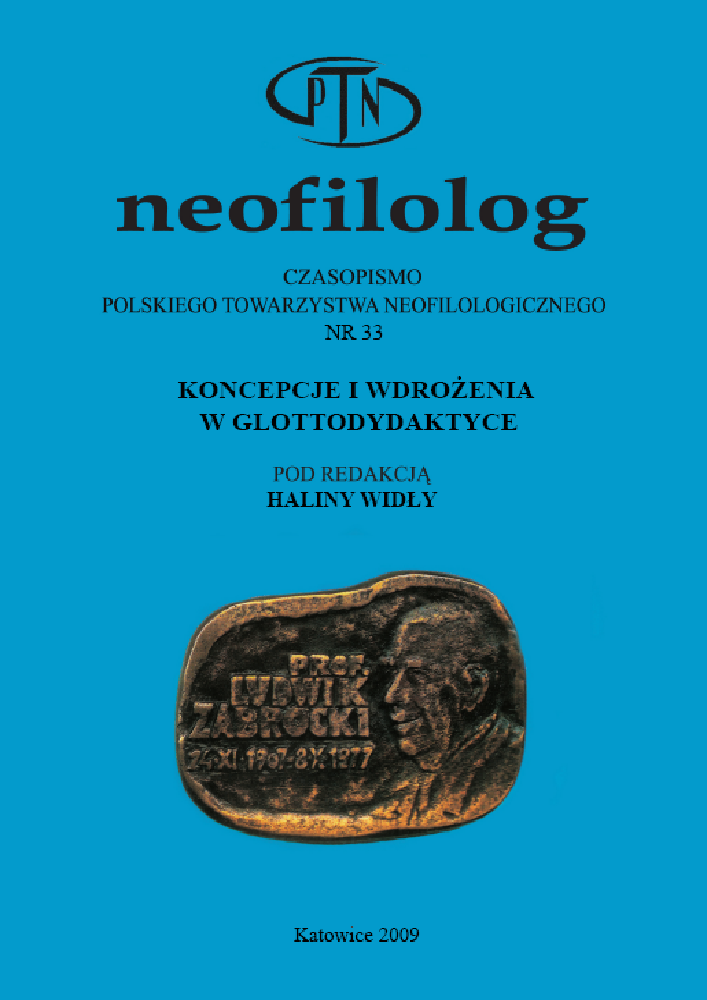Abstract
The article discusses kinds of verbal reports and their characteristic features. More specifically, it focuses on: a) the validity of particular types of verbal reports and the data these are likely to provide, b) a quite difficult distinction between introspection and retrospection in researching reading, and c) the characteristic features and limitations of think-aloud protocols (categorized as introspective verbal report), especially if used to investigate the concrete reading format of gapped-text.
References
Afflerbach, P. P. 1990. « The influence of prior knowledge on expert readers’ main idea construction strategies ». Reading Research Quarterly 25 : 31 – 46.
Carver, R. 1992. « Effect of prediction activities, priori knowledge, and text type upon Mount comprehended: using rauding theory to critique schema theory research ». Reading Research Quarterly 27 : 164 – 174.
Cohen, A. D., Upton, T. A. 2007. « ‘I want to go back to the text’: response strategies on the reading subtest of the new TOEFL ». Language Testing 24 : 209 – 250.
Conrad, F., Blair, J., Tracy, E. 1999. « Verbal reports are data! A theoretical approach to cognitive interviews ». Proceedings of the Federal Committee on Statistical Methodology Research Conference, www.bls.gov/osmr/abstract/st/st990240.htm DW 19.07.2009.
Ericsson, K. A., Simon, H. A. 1993. Protocol analysis: Verbal reports as data. Cambridge : Bradford books/MIT Press.
Garner, R., Wagoner, S., Smith, T. 1983. « Externalizing question-answering strategies of good and poor comprehenders ». Reading Research Quarterly 18 : 439 – 447.
Hosenfeld, C. 1977. « A preliminary investigation of the reading strategies of successful and nonsuccessful second language learners ». System 5 : 110 – 123.
Jimenez, R. T., Garcia, G. E., Pearson, P. D. 1996. « The reading strategies of bilingual Latina/o students who are successful English readers: opportunities and obstacles ». Reading Research Quarterly 31 : 90 – 112.
Konieczna, A. 2009. The use of strategies in gapped-text reading task, referat konferencyjny, 3rd International May Conference on English Studies, Kraków [w druku].
Matsumoto, K. 1993. « Verbal report data and introspective methods in second language research: state of the art ». RELC Journal 24 : 32 – 60.
Olshavsky, J. E. 1976 – 1977. « Reading as problem solving: an investigation of strategies ». Reading Research Quarterly 12 : 654 – 674.
Pressley, M., Afflerbach, P. 1995. Verbal protocols of reading: the nature of constructively responsive reading. Hillsdale : Lawrence Erlbaum Associates.
Pressley, M., Hilden, K. 2004. « Verbal protocols of reading » (w) Literacy research methodologies (red. N. K. Duke i M. H. Mallette). New York : The Guilford Press.
Russo, J. E., Johnson, J. J., Stephens, D. L. 1989. « The validity of verbal protocols ». Memory and Cognition 17 : 759 – 769.
License
Copyright (c) 1970 Anna Konieczna

This work is licensed under a Creative Commons Attribution-NoDerivatives 4.0 International License.
Authors
Authors of texts accepted for publication in Neofilolog are required to complete, sign and return to the Editorial team’s office the Agreement for granting a royalty-free license to works with a commitment to grant a CC sub-license.
Under the agreement, the authors of the texts published in Neofilolog grant Adam Mickiewicz University in Poznań a non-exclusive, royalty-free license and authorize the use of Attribution-NoDerivatives 4.0 International (CC BY-ND 4.0) Creative Commons sub-license.
The authors retain the right to the free disposal of the work.
Users
Interested Internet users are entitled to use works that have been published in Neofilolog since 2017, under the following conditions:
▪ attribution – obligation to provide, together with the distributed work, information about the authorship, title, source (link to the original work, DOI) and the license itself.
▪ no derivatives – the work must be preserved in its original form. Without the author's consent, it is not possible to distribute the modified work in the form of translations, publications, etc.
Copyrights are reserved for all texts published since 2017.
Miscellaneous
Adam Mickiewicz University in Poznań retains the property right as a whole (layout, graphic form, title, cover design, logo etc.).
